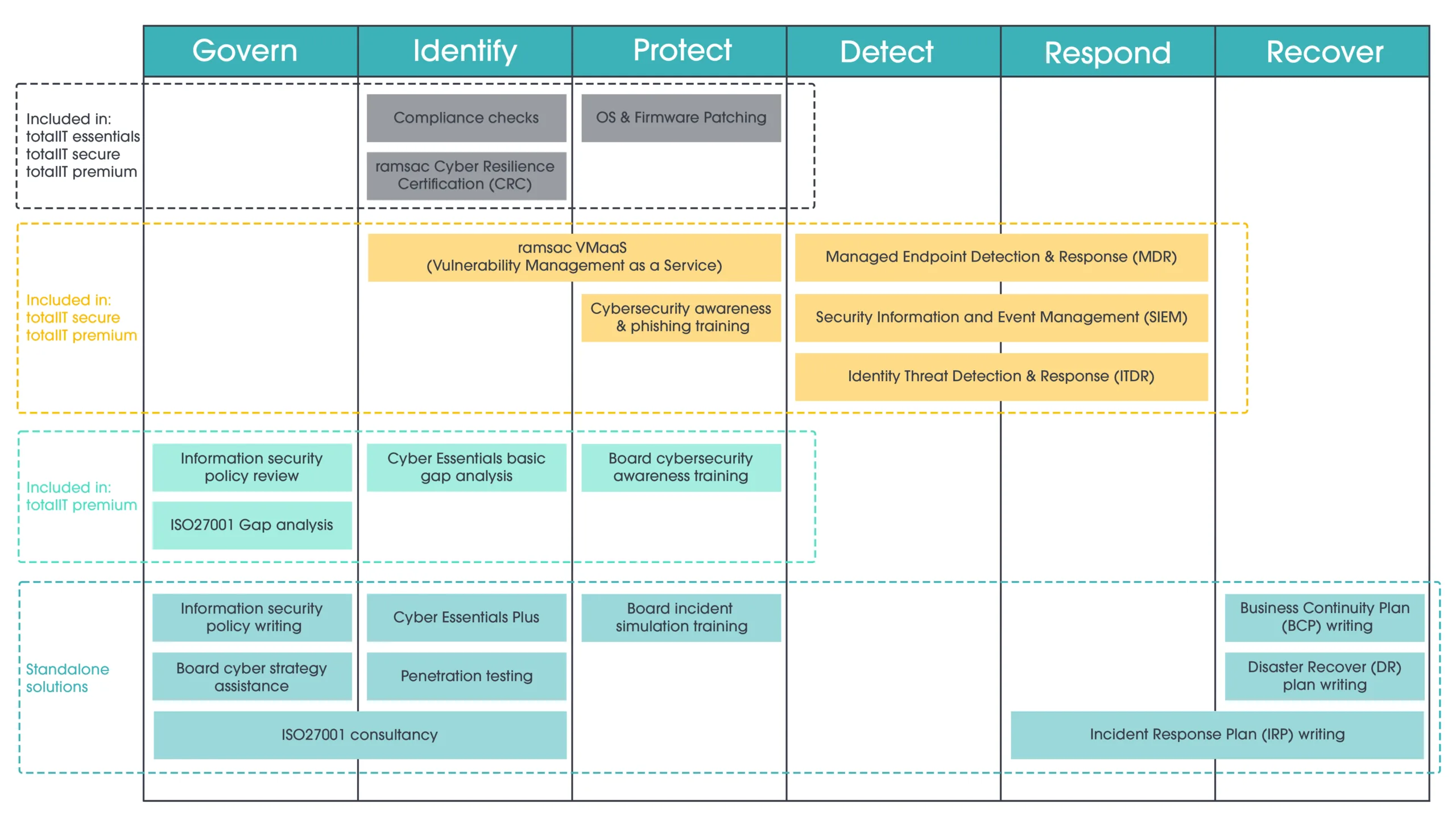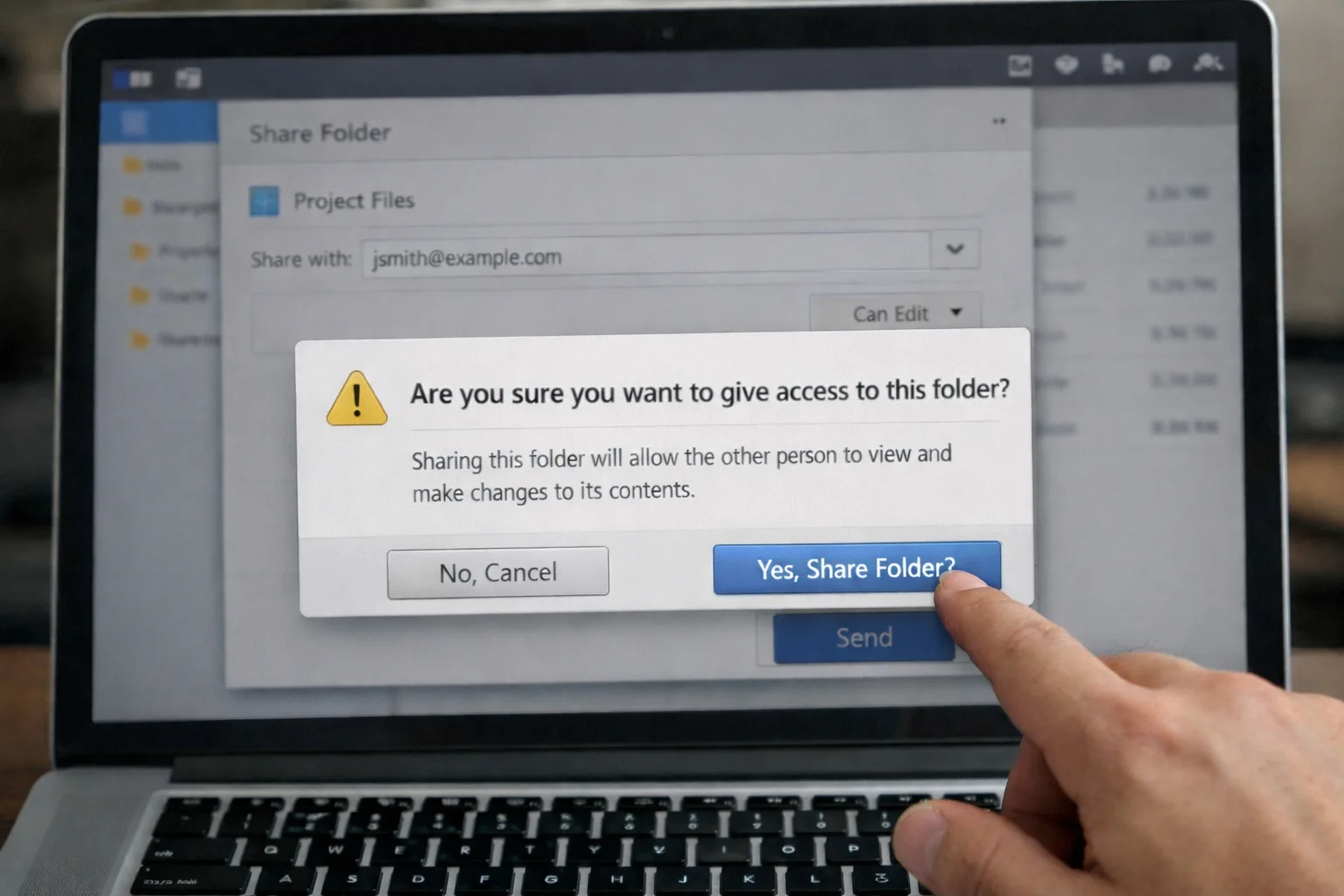The digital revolution has brought new opportunities and greater risks to the manufacturing industry. Businesses that leverage technology have also become lucrative targets for cyber criminals intent on breaching systems and stealing data.
Discover why manufacturing cybersecurity has a crucial role to play in keeping the industry safe and learn about the steps businesses can take to protect themselves against evolving threats.
Why is manufacturing cybersecurity important to businesses?
A technology-heavy industry like manufacturing is particularly vulnerable to sophisticated cyber attacks that can disrupt operations and bring businesses to their knees.
More than four in 10 UK businesses (43%) and three in 10 charities (30%) experienced a cyber attack in the past 12 months. One of the most high-profile cases saw retail giant Marks & Spencer suffer a major data breach that prevented customers from ordering online, damaging its reputation and hitting annual profits by around £300 million.
Modern manufacturing systems are often highly interconnected, with close integration between Information Technology (IT) and Operational Technology (OG). But with more software, devices and apps comes a rise in potential entry points and a larger attack surface, providing greater opportunities for cyber criminals. Not only that, but some manufacturers also rely on outdated legacy systems that are difficult and costly to replace, leaving them without adequate security protections and more exposed to an attack.
What are the main cybersecurity risks to the manufacturing industry?
Manufacturing businesses must protect themselves from an array of cyber threats, largely due to reliance on multiple endpoints, outdated legacy systems, and complex, extended supply chains that bad actors look to exploit.
Over the past decade, manufacturing has gone through rapid change thanks to the evolution of artificial intelligence, big data and the Internet of Things (IoT). However, these technologies combined with increased global connectivity and automation have turned the industry into a prime target for cybercriminals.
From weak points in networks and apps to inadequate cyber training, we highlight the main cybersecurity risks to the manufacturing industry today.
1. Ransomware attacks
Ransomware remains one of the leading causes of manufacturing cybersecurity breaches. It encrypts the victim’s data until a ‘ransom’ is paid for its return, often using digital currencies that are difficult to trace.
Cybercriminals don’t even need advanced technical skills to launch ransomware attacks, with many using the tool Ransomware-as-a-Service (RaaS) for large-scale targeting of businesses. Ransomware can have a severe impact on manufacturing, bringing operations and production to a standstill, disrupting supply chains, and resulting in huge financial losses. Operational downtime is particularly acute in manufacturing, where even a brief period of production inactivity can lead to significant lost revenue.
2. Supply chain attacks
Manufacturing companies often work with long and complex supply chains. Therefore, the impact of a cyber attack on a supply chain can ripple across numerous areas of the business, causing widespread damage. Not only that, but they also provide a potential entry point into company networks and systems.
The knock-on effect of a supply chain attack is often even more severe for companies with inadequate cybersecurity measures in place. In these cases, an attack often goes unnoticed for long periods, causing huge losses and disruption. Supply chain attacks can cripple global enterprises and even government agencies, underscoring their threat of manufacturing businesses of all sizes and sectors.
3. Social engineering attacks
Phishing and social engineering attacks present a significant threat to manufacturing businesses. Phishing – where individuals are tricked into revealing sensitive information such as usernames, passwords, and bank details – remains the most popular and disruptive type of data breach or attack. A staggering 85% of businesses and 86% of charities in the UK experienced a phishing scam in the last 12 months.
Because employees connect to company systems using unmanaged or unsecure devices, phishing creates new vulnerabilities and weaknesses that cybercriminals try to exploit to gain access to networks, accounts and data. Once in, they’ll make fraudulent transactions, impersonate employees, and attempt to extract sensitive data through manipulation or deception.

4. AI-Enabled Cybercrime
Alongside its numerous benefits in the workplace, artificial intelligence allows cybercriminals to develop increasingly sophisticated and scalable attacks on the manufacturing industry. While ethical hackers positively use their skills to expose vulnerabilities in systems, AI hacking involves the malicious use of AI in a cyber attack. From AI-generated deepfake scams to malware AI hacking, the integration of artificial intelligence into cybercriminal activity poses a significant, ongoing threat to the manufacturing industry.
What are the most effective manufacturing cybersecurity solutions?
The rise in global attacks and threats on the manufacturing industry further highlights the urgent need for robust cybersecurity measures. By investing in advanced infrastructure, modern cybersecurity solutions, and cybersecurity training for all employees, companies can reduce the risk of these evolving threats.
Some common manufacturing cybersecurity practices include:
Advanced cybersecurity monitoring and threat detection
Manufacturing businesses can stay ahead of malicious threats by implementing advanced cybersecurity monitoring solutions. These systems can detect suspicious activity and anomalies 24/7, issuing real-time alerts to minimise the impact of an attack. Strengthening monitoring and detection capabilities helps manufacturing firms combat evolving threats and ensure business continuity.
Conduct regular cyber audits
Risk assessments and cybersecurity audits are essential for helping manufacturers identify system vulnerabilities and weaknesses. Analysing the likelihood and potential impact of evolving threats enables companies to develop robust security strategies and allocate resources to stay online and avoid costly downtime.
Leverage cybersecurity tools
Investing in trusted cybersecurity services and tools helps manufacturers strengthen their cyber resilience and mitigate the risk of a cyber attack. Tools such as encryption technologies, firewalls, and intrusion alert systems play a vital role in protecting data, sensitive information and critical infrastructure that powers business operations.
Install security updates
Manufacturing companies can avoid software vulnerabilities by ensuring all network devices are updated with the latest version. Businesses should prioritise updates and patches across all networks and applications to guard against these threats. Ensuring security gaps are filled will deny cyber criminals access to your devices and systems. Regular updates should be a core element of any robust cybersecurity strategy.
Invest in cybersecurity training
The majority of data breaches result from human error. Regular cybersecurity awareness training equips employees from the shop floor to boardroom level with the knowledge and tools to stay resilient in the face of evolving threats, while strengthening a company’s human firewall. Cybersecurity training helps staff identify common threats like phishing, reinforces the importance of following strict security protocols and builds a robust culture of security awareness in the workplace.
As the manufacturing industry faces up to increasingly sophisticated cyber threats and supply chains grow more complex, a coordinated security strategy across both IT and OT environments is vital for detecting new threats and vulnerabilities.
Looking to strengthen your manufacturing cyber defences?
At ramsac, we support manufacturing businesses with expert cybersecurity strategies tailored to the unique challenges of operational and IT environments. From threat detection to staff training and compliance support, our team is here to help you stay secure and resilient.
Let’s start with a conversation. Contact us to arrange a cybersecurity consultation tailored to your manufacturing needs.










